BNCT treatments for cancer patients have started as part of a clinical trial
16.5.2025 07:55:00 EEST | HUS | Press release
HUS has introduced the first in-hospital boron neutron capture therapy accelerator in Western countries. Boron neutron capture therapy, BNCT for short, is a radiation therapy method that can destroy cancer cells while sparing the surrounding tissue.
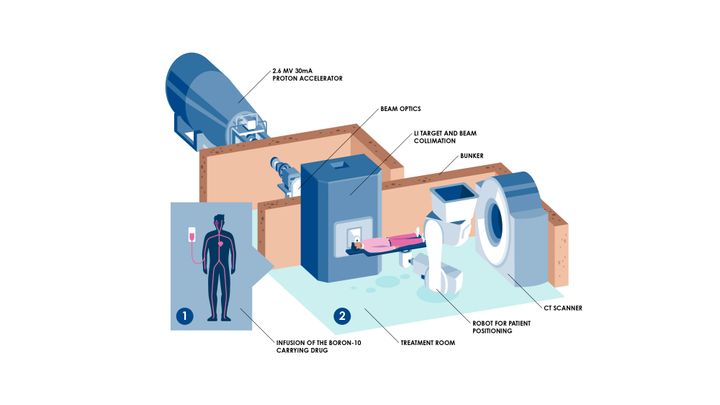
The first cancer patients received treatment with BNCT at Comprehensive Cancer Center in May as part of a study.
The launch of the treatments at HUS Comprehensive Cancer Center was made possible through a multi-year collaborative effort with the North American company Neutron Therapeutics. The Comprehensive Cancer Center was chosen as a partner because of the high quality of scientific BNCT research carried out at the center since 1992.
“The first BNCT center in Western countries presents a unique opportunity to develop this promising treatment method in close collaboration with Finnish and international research groups and offer cancer patients the chance to participate in various clinical trials,” says Johanna Mattson, Director of HUS Comprehensive Cancer Center.
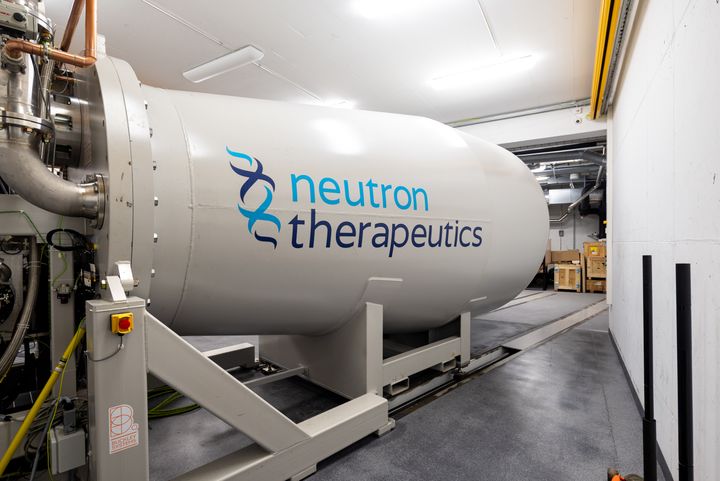
Neutron capture therapy is targeted radiotherapy that spares the surrounding tissue
Boron neutron capture therapy, BNCT for short, is a type of targeted radiotherapy based on the decay reaction that occurs in boron atom nuclei delivered to the cancerous tumor when it is irradiated with neutrons.
Before the neutron irradiation, the patient is administered a boron delivery agent intravenously. The delivery agent accumulates in the cancer cells and delivers the boron inside the cells.
When the tumor area is irradiated with neutrons, it results in a very high local dose of radiation therapy in the cancer cells that contain boron.
“Short-range radiation effectively destroys the cancer cells while sparing the surrounding tissue. This requires fewer treatments than traditional radiation therapy, only one or two,” says Chief Medical Physicist Mikko Tenhunen from HUS Comprehensive Cancer Center.
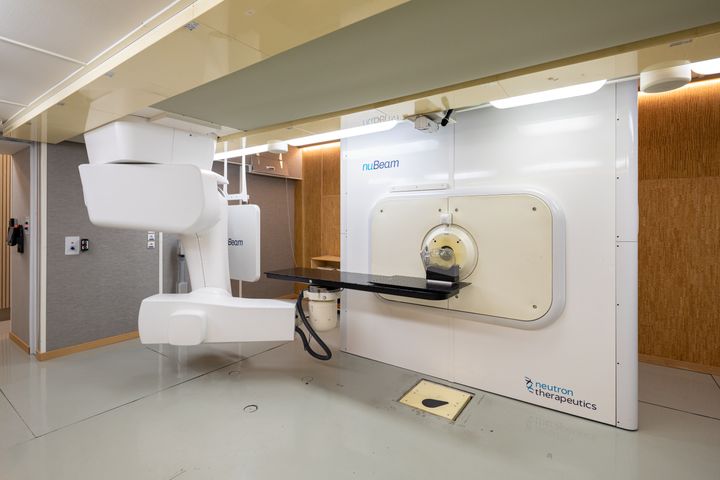
The efficacy and safety of BNCT is being investigated in a clinical trial
A study was started at the Comprehensive Cancer Center to treat ten patients who have recurrent cancer in the head and neck area. The study assesses the safety and efficacy of BNCT.
“The goal is to extend the research program to other cancers in the future. Developing BNCT as a treatment also involves combining it with different cancer drugs and researching potential new boron delivery agents,” says Anu Anttonen, chief physician responsible for radiation therapy at HUS Comprehensive Cancer Center.
The media is welcome to visit the BNCT center on May 16 between noon and 1 p.m. Director Johanna Mattson and Chief Medical Physicist Mikko Tenhonen from HUS Comprehensive Cancer Center will be there for interviews. Please register by email viestinta@hus.fi or by telephone 050 427 2875.
Images
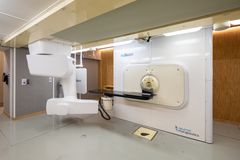
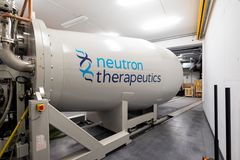
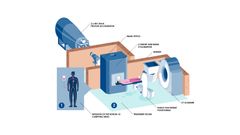
About HUS
HUS Helsinki University Hospital is the biggest provider of specialized healthcare in Finland. Our high expertise is internationally recognized and accredited. As a university hospital, we are on the cutting edge of developing and evaluating our treatment methods and activities.
HUS treats almost 700,000 patients every year. Our more than 27,000 professionals work to provide the best possible care for our patients. We are responsible for organizing specialized health care in the Uusimaa region. The treatment of many rare and difficult diseases in Finland has been centralized to HUS as well.
HUS – Leading healthcare
The HUS media service is available for the media Mon–Thu 10:00 a.m.–4:00 p.m. and Fri 10:00 a.m.–3:00 p.m., tel. 050 427 2875, or via e-mail: viestinta@hus.fi.
hus.fi/en
Alternative languages
Subscribe to releases from HUS
Subscribe to all the latest releases from HUS by registering your e-mail address below. You can unsubscribe at any time.
Latest releases from HUS
Komjölksallergi i tidig barndom har samband med nedsatt bentäthet i ungdomen23.2.2026 08:29:14 EET | Pressmeddelande
En studie visar att komjölksallergi som konstaterats i spädbarnsåldern har samband med nedsatt bentäthet i ungdomen, även om allergin hos största delen av barnen hade försvunnit före puberteten. Nedsatt bentäthet kan öka risken för frakturer.
Varhaislapsuuden lehmänmaitoallergia on yhteydessä alentuneeseen luuntiheyteen nuoruusiässä23.2.2026 08:29:14 EET | Tiedote
Tutkimus osoittaa, että imeväisiässä todettu lehmänmaitoallergia liittyy alentuneeseen luuntiheyteen nuoruusiässä, vaikka suurimmalla osalla lapsista allergia oli väistynyt ennen murrosikää. Alentunut luuntiheys voi lisätä murtumariskiä.
Förändringar i axeln vanliga efter 40 - svagt samband med besvär17.2.2026 13:01:23 EET | Pressmeddelande
Enligt en färsk finsk befolkningsundersökning kan man se förändringar i rotatorkuffens senor vid magnetundersökning av axlarna även hos symtomfria personer över 40 år. Fynden är mycket vanliga, men i regel är kopplingen mellan dessa och axelproblem svag.
Lähes kaikilla yli 40-vuotiailla muutoksia olkapään magneettikuvissa – yhteys olkapäävaivoihin heikko17.2.2026 13:01:23 EET | Tiedote
Tuoreen suomalaisen väestötutkimuksen mukaan myös oireettomilla yli 40-vuotiailla näkyy olkapään magneettikuvissa kiertäjäkalvosimen jänteiden muutoksia. Löydökset ovat erittäin yleisiä, mutta niiden yhteys olkapäävaivoihin on heikko.
Nearly all people aged over 40 show changes in shoulder MRI scans – weak link to shoulder problems17.2.2026 13:01:23 EET | Press release
According to a recent population study conducted in Finland, even symptom-free people aged over 40 show changes in MRI scans of the rotator cuff tendons. These findings are common but their link to shoulder problems is weak.
In our pressroom you can read all our latest releases, find our press contacts, images, documents and other relevant information about us.
Visit our pressroom